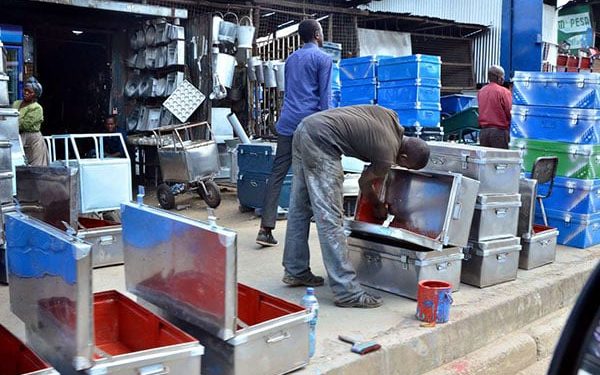Instead of starting a textile industry and hiring and training a labour force, recognition of prior learning can be extended beyond construction and similar industries.
Jua-kali tailors can be brought into formal labour markets and their prior skills can be formalised and recognised, providing a significant labour force for the textile industry. This applies to many industries including metalwork, shoe repair and woodwork.
A key intention of the Kenya Kwanza government is to boost Kenyan manufacturing, with the China Square saga indicating the zeal with which the government intends to reduce our dependence on manufactured imports. Similarly, there is a strong desire to increase the tax base in the informal sector.
Read: Jua Kali-Kenya’s Potential In Handcrafted Textiles
By bringing jua-kali artisans to the table, the State does not have to start at zero when training the workforce necessary for Kenya’s rapid industrialisation.
This also boosts the tax base by increasing income tax received as more Kenyans would enter the formal economy, providing a ready workforce and allowing for more firms to be formed hence more corporate tax to be collected. An added benefit would be growth in Government revenue without hiking tax rates, which hamper Kenyan consumers and producers alike.
As such, the Government should consider collaborating with cottage industry artisans in its industrialisation efforts.
Email your news TIPS to editor@thesharpdaily.com


















